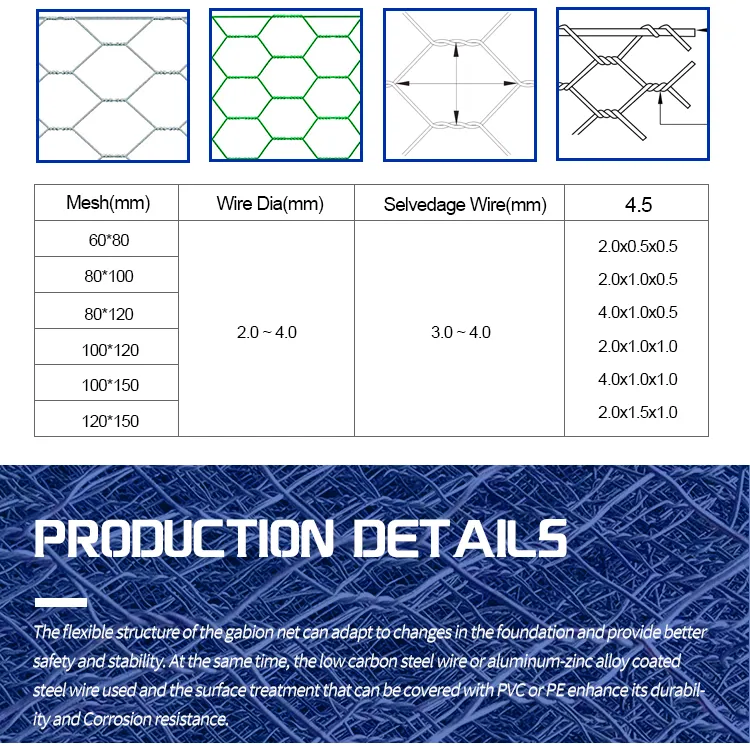-
 Phone:
Phone: -
 Email:
Email:

gauge of coat hanger wire
Understanding the Gauge of Coat Hanger Wire
Coat hangers are ubiquitous items in homes and wardrobes, yet few pay attention to the specifications that make these simple objects functional. One of the key specifications of coat hangers, as well as many other types of wire products, is the wire gauge. The gauge of coat hanger wire plays a significant role in its functionality, durability, and suitability for various types of clothing.
What is Wire Gauge?
Wire gauge is a measurement that reflects the diameter of the wire. In the context of coat hangers, wire gauge is crucial for determining how much weight the hanger can support and how flexible or rigid it will be. The American Wire Gauge (AWG) system is most commonly used in the United States, where a smaller gauge number indicates a thicker wire. For instance, a 12-gauge wire is thicker than a 20-gauge wire.
Common Wire Gauges for Coat Hangers
Most standard wire coat hangers are made from wire that ranges from 14 to 18 gauge. A 14-gauge wire is relatively thick and provides substantial strength, making it suitable for heavier garments such as coats and jackets. On the other hand, 18-gauge wire is thinner and more flexible, making it ideal for lighter clothing items like shirts or blouses.
The Importance of Wire Gauge in Coat Hangers
1. Weight Capacity The wire gauge significantly impacts the weight capacity of the hanger. Thicker wires can support heavier items without bending or breaking, while thinner wires may bend under the weight of a heavy coat. This makes it essential to choose the appropriate gauge based on the type of clothing you intend to hang.
gauge of coat hanger wire

2. Durability Thinner wires are often less durable over time and may easily become misshapen or break after prolonged use. In contrast, thicker wires tend to maintain their shape and integrity, allowing them to withstand the rigors of frequent use. A dependable coat hanger can help keep your clothing in top condition.
3. Flexibility and Design The gauge of the wire also affects the flexibility and design of the hanger. Thicker wires are generally more rigid, offering less flexibility for designs that require curves, such as those used for skirt hangers or special garment features. This balance between flexibility and strength is crucial for ensuring that the hanger can adequately support the garment while maintaining an aesthetic appeal.
4. Cost Considerations Generally, coat hangers made from thicker wires tend to be more expensive due to the increased material cost. When selecting coat hangers, consumers must balance their budget and the longevity and functionality they expect from the product.
Selecting the Right Coat Hanger
When choosing coat hangers, consider the types of clothing items you will be storing. For heavier garments, opt for 14-gauge or even thicker hangers for maximum support. For lighter clothes, 16 or 18-gauge hangers are often sufficient and can be more cost-effective.
Conclusion
The gauge of coat hanger wire is a crucial aspect that affects the functionality, durability, and design of hangers. Understanding the differences in wire gauges enables consumers to make informed choices based on their specific clothing storage needs. By selecting the appropriate gauge, you can protect your garments and maintain an organized wardrobe, ensuring that each piece of clothing is hung properly and remains in excellent condition for years to come. Next time you reach for a coat hanger, take a moment to appreciate the thought and engineering that goes into this seemingly simple wardrobe staple.
-
Wire Mesh for Every Need: A Practical SolutionNewsJul.25,2025
-
Steel Fences: Durable, Secure, and Stylish OptionsNewsJul.25,2025
-
Roll Top Fencing: A Smart Solution for Safety and SecurityNewsJul.25,2025
-
Cattle Farm Fencing Solutions for Maximum SecurityNewsJul.25,2025
-
Affordable Iron Binding Wire SolutionsNewsJul.25,2025
-
Affordable Galvanized Wire SolutionsNewsJul.25,2025
-
Wire Hanger Recycling IdeasNewsJul.25,2025








